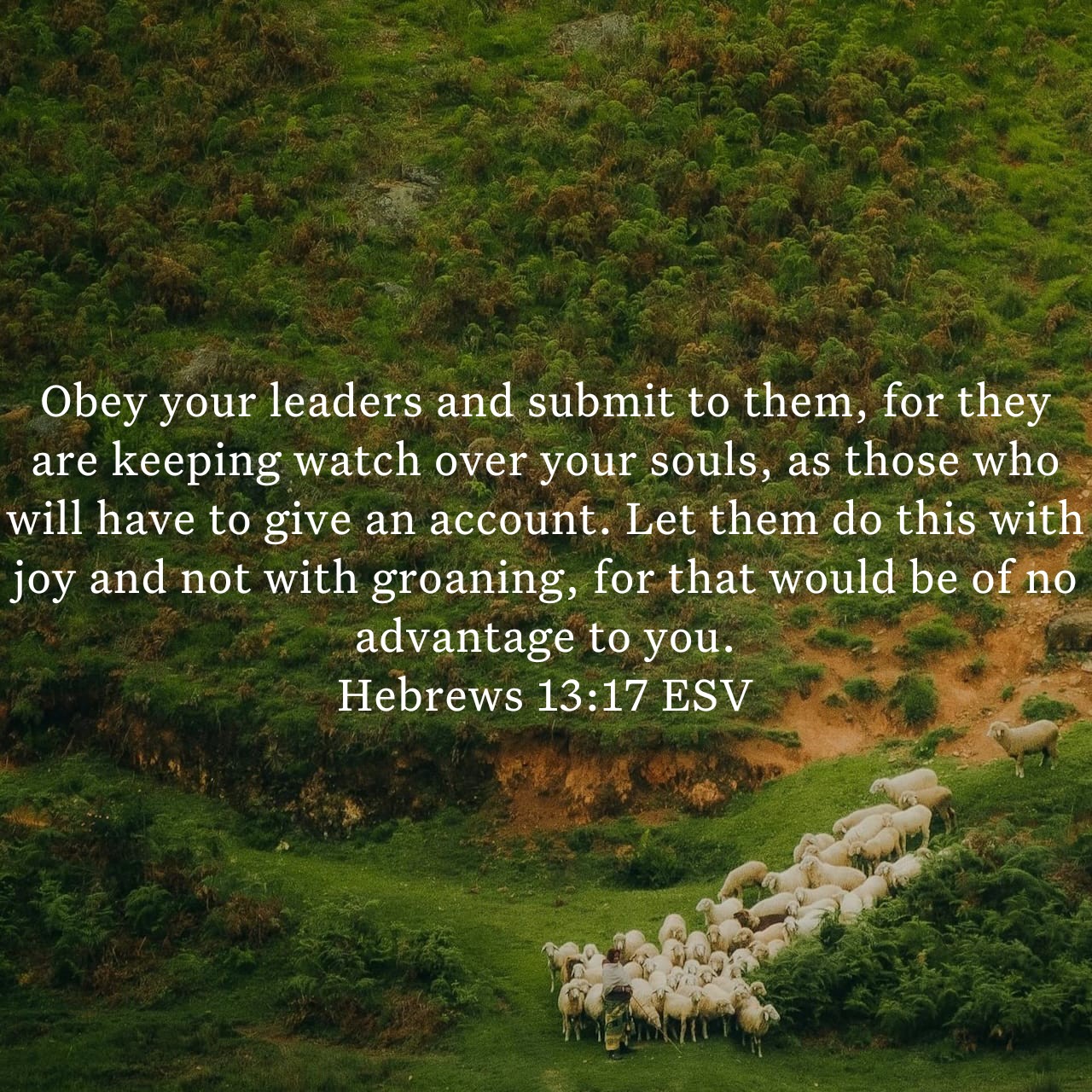Devotional 14 August 2025

The writer of Hebrews calls us to a faith-filled obedience to the leaders God has placed over us. This is not blind loyalty but a recognition that leadership in the church flows from Christ Himself, the Great Shepherd (Hebrews 13:20; Revelation 7:17). As Philippians 2:5–11 reminds us, the One who humbled Himself as a servant is now exalted above every name. He follows the Father perfectly (John 5:19), and in turn, leaders are called to follow Christ’s example (1 Peter 5:2–4), becoming living beacons of faith.
This is a chain of imitation: the Son reflects the Father, leaders reflect the Son, and we, by following godly leaders, honor Christ (John 5:23) and the Father. But to whom much is given, much is required (Luke 12:48). Leaders bear a weighty responsibility, accountable to God for the care of souls (Ezekiel 33:7–9; James 3:1). Their calling is one of dependent honor—their authority derives from Christ’s authority, and their example must be a living sacrifice (Romans 12:1) that points us toward the “faith once for all delivered to the saints” (Jude 3).
For the church, obedience is not passive. It is active faith—trusting God by trusting those He has appointed—while also holding leaders to the standard of Christ’s righteousness. This is why the writer urges prayer for leaders, that their conscience remain clear, their conduct honorable, and their faith steadfast (Ephesians 6:18–20; Colossians 4:3–4).
In a world that prizes radical individualism, the gospel calls us into a community of mutual submission (Ephesians 5:21), bound together by the Shepherd’s voice. When leaders follow Christ and we follow them, the flock moves together toward the joy of God’s kingdom.